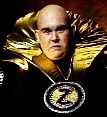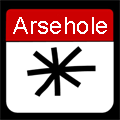Saw it in an article in regard to one of our hockey commentators who has a penchant for bad puns.
Witzelsucht
13 posts
• Page 1 of 1
Witzelsucht
For the 'Interesting German Word of the Day' series. 
Saw it in an article in regard to one of our hockey commentators who has a penchant for bad puns.
Saw it in an article in regard to one of our hockey commentators who has a penchant for bad puns.
striving to recognize the penultimate straw
-

g-one - Illuminatus

- Posts: 2256
- Joined: Tue Jul 12, 2016 6:18 am
- Location: Melonville, Canada
-

Heid the Ba - Enlightened One

- Tree hugging, veggie, sandal wearing, pinko Euroweasel
- Mr. Sexy Ass
- Posts: 107945
- Joined: Wed Aug 02, 2006 12:20 pm
- Location: Edinburgh, Scotland
Re: Witzelsucht
And an extremely interesting one at that, linguistically.
"Witz" is cognate with "wit", but doesn't mean the same anymore - although it used to in older German texts and in the pseudo-old German of the Wagner operas, Witz actually used to mean wit, wittyness, intelligence, intellectual agility, etc.
But in modern German, Witz just means "joke" - the meaning has grown a lot narrower, and less interesting. And the verb derived from it, "witzeln" does mean to make jokes, in a distinctly pejoritive sense - meaning making, flat, bad, lame jokes.
Sucht, oh, you will like this. Sucht (fem.) is a nominalization of a verb. And you (I am looking at you, Mactep and Richard_A) might be tempted to think that the verb it originates from is "suchen" - cognate with "to seek", and meaning just that. But no, the verb it belongs to is "siechen" (hardly used anymore) - cognate with "sick", meaning, to be ill. So Witzelsucht ist the disease that makes you make jokes; in modern German, the word "Sucht" isn't just synonymous with disease, it is used in a narrower sense to denote dependence or substance abuse disorders - if someone has swollen legs from heart failure, we don't call this "Wassersucht" anymore (although we do call jaundice "Gelbsucht"), but we regularly talk about Alkoholsucht, Heroinsucht, Nikotinsucht, etc.
So Witzelsucht is not only a disesase that makes you make stupid jokes, it is a disease that makes you crave to make stupid jokes. In psychopathology, it is an actual medical term denoting a symptom in certain manifestations of schizophrenia.
Nifty, eh?
Next up, Kleinod - a word that is extremely beautiful, itself a Kleinod, but sadly it is on the way out. Hardly used any more.
"Witz" is cognate with "wit", but doesn't mean the same anymore - although it used to in older German texts and in the pseudo-old German of the Wagner operas, Witz actually used to mean wit, wittyness, intelligence, intellectual agility, etc.
But in modern German, Witz just means "joke" - the meaning has grown a lot narrower, and less interesting. And the verb derived from it, "witzeln" does mean to make jokes, in a distinctly pejoritive sense - meaning making, flat, bad, lame jokes.
Sucht, oh, you will like this. Sucht (fem.) is a nominalization of a verb. And you (I am looking at you, Mactep and Richard_A) might be tempted to think that the verb it originates from is "suchen" - cognate with "to seek", and meaning just that. But no, the verb it belongs to is "siechen" (hardly used anymore) - cognate with "sick", meaning, to be ill. So Witzelsucht ist the disease that makes you make jokes; in modern German, the word "Sucht" isn't just synonymous with disease, it is used in a narrower sense to denote dependence or substance abuse disorders - if someone has swollen legs from heart failure, we don't call this "Wassersucht" anymore (although we do call jaundice "Gelbsucht"), but we regularly talk about Alkoholsucht, Heroinsucht, Nikotinsucht, etc.
So Witzelsucht is not only a disesase that makes you make stupid jokes, it is a disease that makes you crave to make stupid jokes. In psychopathology, it is an actual medical term denoting a symptom in certain manifestations of schizophrenia.
Nifty, eh?
Next up, Kleinod - a word that is extremely beautiful, itself a Kleinod, but sadly it is on the way out. Hardly used any more.
Non sunt multiplicanda entia praeter necessitatem
-

Arneb - Moderator

- German Medical Dude
- God of All Things IT
- Posts: 70452
- Joined: Thu Nov 23, 2006 8:22 pm
- Location: Potsdam, Germany
Re: Witzelsucht
Thanks for that explanation. When I asked my dad about the word, he thought exactly as you said, that sucht would be seek or search, so I looked it up and was given suche for search, but sucht was said to be addiction or obsession.
striving to recognize the penultimate straw
-

g-one - Illuminatus

- Posts: 2256
- Joined: Tue Jul 12, 2016 6:18 am
- Location: Melonville, Canada
-

Heid the Ba - Enlightened One

- Tree hugging, veggie, sandal wearing, pinko Euroweasel
- Mr. Sexy Ass
- Posts: 107945
- Joined: Wed Aug 02, 2006 12:20 pm
- Location: Edinburgh, Scotland
Re: Witzelsucht

In this context, the German word for hospital is Krankenhaus, house of the sick. The word in Dutch is ziekenhuis. So yeah, siechen.
Non sunt multiplicanda entia praeter necessitatem
-

Arneb - Moderator

- German Medical Dude
- God of All Things IT
- Posts: 70452
- Joined: Thu Nov 23, 2006 8:22 pm
- Location: Potsdam, Germany
Re: Witzelsucht
Arneb wrote:And you (I am looking at you, Mactep and Richard_A) might be tempted to think that the verb it originates from is "suchen" - cognate with "to seek", and meaning just that.
Well, yes, I did think that
I thought maybe it meant a joke (or perhaps a teller of jokes) in search of wittiness.
I did come across one recently that I hadn't seen before - dead trousers.
They call me Mr Celsius!
-

Мастер - Moderator

- Злой Мудак
- Mauerspecht
- Posts: 23993
- Joined: Tue Aug 02, 2005 2:56 pm
- Location: Far from Damascus
Re: Witzelsucht
Tote Hose - that's nice innit? We have a punk band by that name. To the interested audience - anyone have any idea what it means?
Non sunt multiplicanda entia praeter necessitatem
-

Arneb - Moderator

- German Medical Dude
- God of All Things IT
- Posts: 70452
- Joined: Thu Nov 23, 2006 8:22 pm
- Location: Potsdam, Germany
Re: Witzelsucht
Arneb wrote:Tote Hose - that's nice innit? We have a punk band by that name.
I believe that's how I came across it.
Arneb wrote:To the interested audience - anyone have any idea what it means?
I think I've got the usage right, but I'm not entirely sure.
Perhaps this would be a good pub quiz team name.
ETA - come to think of it, I came across it while searching for band names to use in the "add a word, ruin a band" thread.
They call me Mr Celsius!
-

Мастер - Moderator

- Злой Мудак
- Mauerspecht
- Posts: 23993
- Joined: Tue Aug 02, 2005 2:56 pm
- Location: Far from Damascus
Re: Witzelsucht
I guess it's hard to ruon the name more by adding a word.
Non sunt multiplicanda entia praeter necessitatem
-

Arneb - Moderator

- German Medical Dude
- God of All Things IT
- Posts: 70452
- Joined: Thu Nov 23, 2006 8:22 pm
- Location: Potsdam, Germany
Re: Witzelsucht
Supposedly it was trending as slang a few years back: https://germanyinusa.com/2019/01/04/wor ... tote-hose/
striving to recognize the penultimate straw
-

g-one - Illuminatus

- Posts: 2256
- Joined: Tue Jul 12, 2016 6:18 am
- Location: Melonville, Canada
Re: Witzelsucht
Arneb wrote:In this context, the German word for hospital is Krankenhaus, house of the sick.
Around here, a crack house is very different.
No trees were killed in the posting of this message.
However, a large number of electrons were terribly inconvenienced.
==========================================
Build a man a fire and he will be warm for a few hours.
Set a man on fire and he will be warm for the rest of his life.
However, a large number of electrons were terribly inconvenienced.
==========================================
Build a man a fire and he will be warm for a few hours.
Set a man on fire and he will be warm for the rest of his life.
-

Lance - Administrator

- Cheeseburger Swilling Lard-Ass who needs to put down the remote and get off the couch.
- Posts: 91475
- Joined: Thu May 12, 2005 5:51 pm
- Location: Oswego, IL
Re: Witzelsucht
g-one wrote:Supposedly it was trending as slang a few years back: https://germanyinusa.com/2019/01/04/wor ... tote-hose/
Interestingly, I'd disagree with one aspect of the article on germanyinusa.com: That the word had nothing to with pants. It seems to be one of the expression that has taken the road form more to less sexual connotation. Tote Hose can very definitely mean that nothing much is going on "in the pants", but it is more than that.
Non sunt multiplicanda entia praeter necessitatem
-

Arneb - Moderator

- German Medical Dude
- God of All Things IT
- Posts: 70452
- Joined: Thu Nov 23, 2006 8:22 pm
- Location: Potsdam, Germany
13 posts
• Page 1 of 1
Return to Here There Be Llamas
Who is online
Users browsing this forum: No registered users and 5 guests
